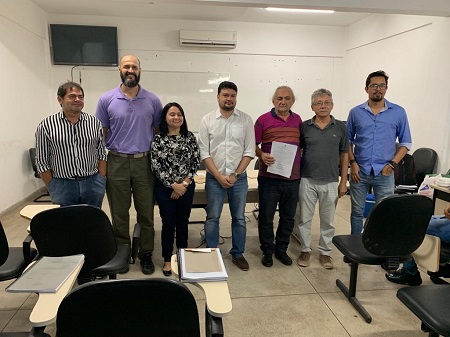
Premiação de Melhor Trabalho
A Coordenação do PPGEE parabeniza DALILA REIS GRIPPA, OLÍVIA DE NAZARÉ DOS SANTOS NUNES, CRISTIANO BRAGA DE OLIVEIRA, GERALDO SOUZA DE MELO e WAGNER ORMANES PALHETA CASTRO cuja orientação no Programa é do Professor Doutor Victor Alexandrovich Dmitriev, pelo Prêmio de melhor artigo no III Congresso de Tecnologia e Desenvolvimento na Amazônia, realizado no período de 18 a 22 de Novembro de 2019 na cidade de Santarém - PA.
O artigo "Graphene-Based Directinal Coupler for THz Region" foi premiado durante o Congresso.
A Coordenação












